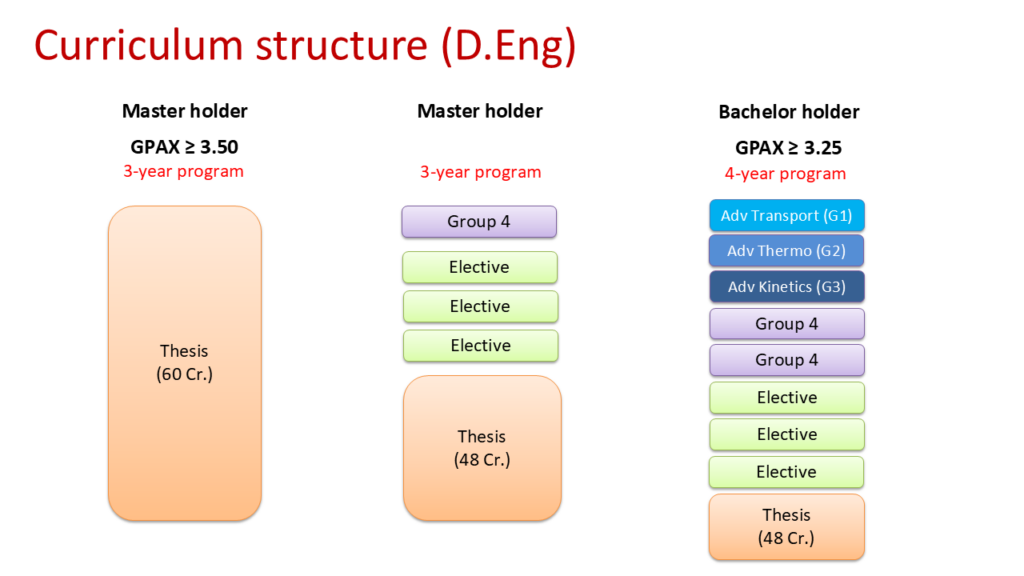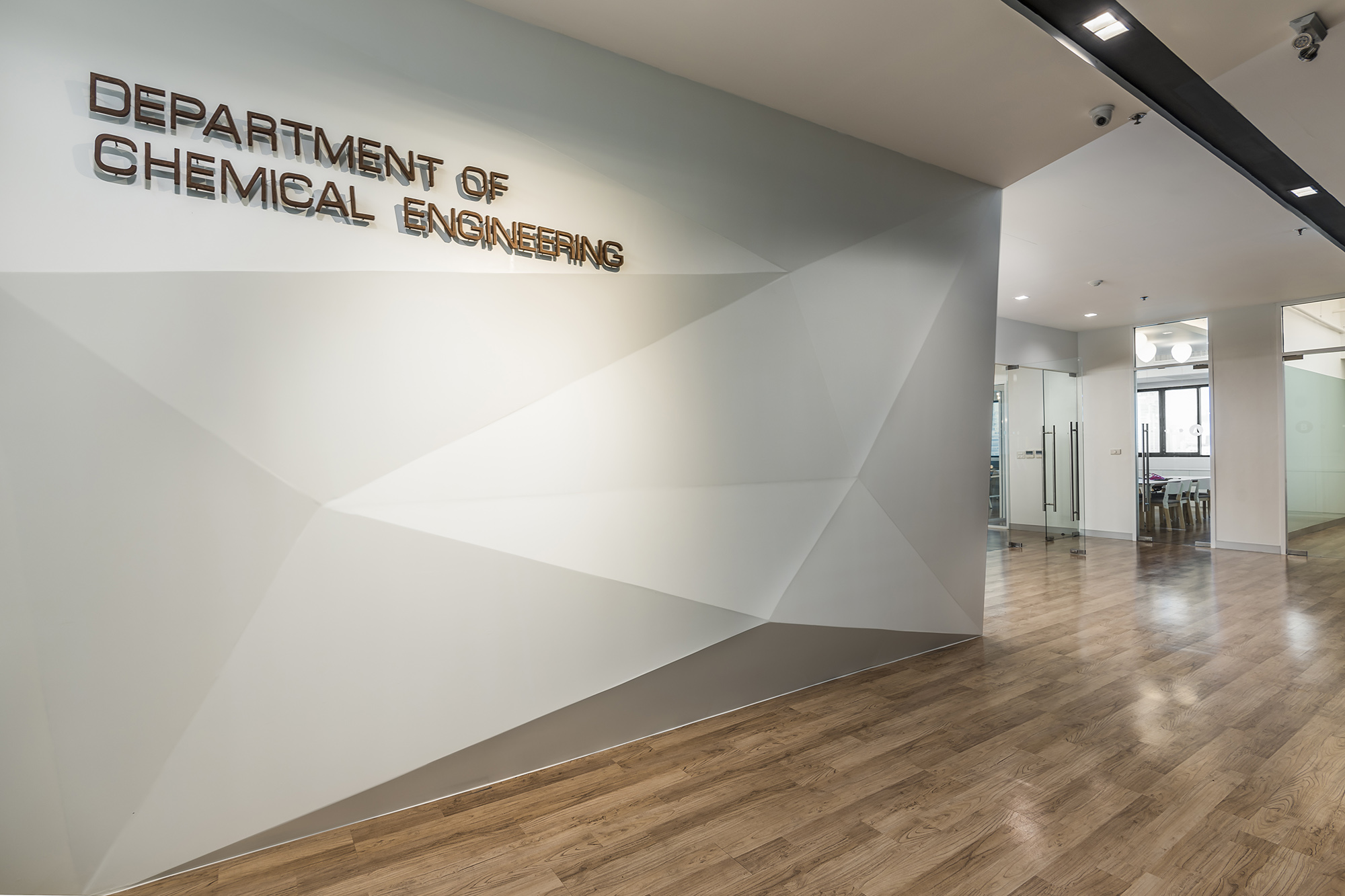Doctor of Engineering in Chemical Engineering

OVERVIEW
Chemical engineering involves molecular transformations—chemical, physical, and biological—from the submolecular to the macroscopic, and the analysis, synthesis, and operation of such systems. Graduate study provides both rigorous training in the fundamental core discipline of chemical engineering and the opportunity to focus on specific division. In addition to completing four core subject requirements in thermodynamics, reaction engineering, mathematics, and transportation phenomena, students select a research lab for specialization: chemical engineering fundamentals, catalysis and reaction engineering, control and systems engineering, biochemical engineering, particle technology, polymer engineering, and environmental chemical engineering.

ADMISSIONS
To qualify for acceptance to the D.Eng. program, a student should have no grades below B in graduate work and a grade point average of 3.0 or better (A = 4.0). The M.Eng. degree is not a prerequisite for the D.Eng. program, and outstanding students with a B.Eng. degree in chemical engineering and a minimum grade point average of 3.25 are encouraged to apply directly to the D.Eng. program. The doctoral program course requirements: students with a minimum graduate course of 3.5 need not to take any coursework, otherwise they are required to obtain at least 12 credits beyond the M.Eng. degree exclusive of the seminar courses and language requirement. To proceed directly from a B.Eng. to the D.Eng program, a student typically needs 24 credits of coursework, exclusive of the seminar courses and language requirement.
Doctoral Degree Program 2021Degree Requirements There are two patterns of study as follows:
* Seminar in Chemical Engineering III and IV are non credit required courses (s/u) and not counted for in order to fulfill the program
Requirements
The degree requires that you complete:
- the core curriculum in chemical engineering of 9 credits (pattern 2.2 only)
- two seminar courses (Seminar III and Seminar IV) and afterward doctoral seminar in every semester
- the required and elective curriculum in each division (pattern 2.1 and 2.2 only)
- the writing doctoral qualifying examinations
- the writing and oral defense of a thesis on original research
- An English Proficiency test (CU-TEP) with a minimum score of 67 before graduated, if not they must take a course on English
The core curriculum is:
- Advanced Transport Phenomena 2105602
- Advanced Chemical Engineering Thermodynamics 2105603
- Advanced Chemical Engineering Kinetics and Chemical Reactor Design 2105604
Three exams are required for the D.Eng. :
The first is the qualifying exam which is taken within the first two years. They are offered in December (1st semester) and May (2nd semester), and are taken by most students after one or two terms in residence. The normal duration of the degree program is four years.
In the second is the general exam, the student prepares a written Doctoral dissertation proposal and presents it orally to a faculty committee. This exam is scheduled on an individual basis after coursework and language requirements are completed.
The final exam is an oral defense of the student’s completed research, following submission of the written dissertation.
Requirements (D.Eng. Pattern 1.1) (M.Eng holder, GPAX ≥ 3.5)
(Research Program)
No Course Credits
0
Thesis Credits
0
Seminar Credits
Requirements (D.Eng. Pattern 1.2) (B.Eng holder, GPAX≥ 3.60)
(Research Program)
No Course Credits
0
Thesis Credits
0
Seminar Credits
Requirements (D.Eng. Pattern 2.1) (M.Eng holder)
(Coursework Program)
0
Course Credits
0
Thesis Credits
0
Seminar Credits
Requirements (D.Eng. Pattern 2.2) (B.Eng holder, GPAX≥ 3.25)
(Coursework Program)
0
Course Credits
0
Thesis Credits
0
